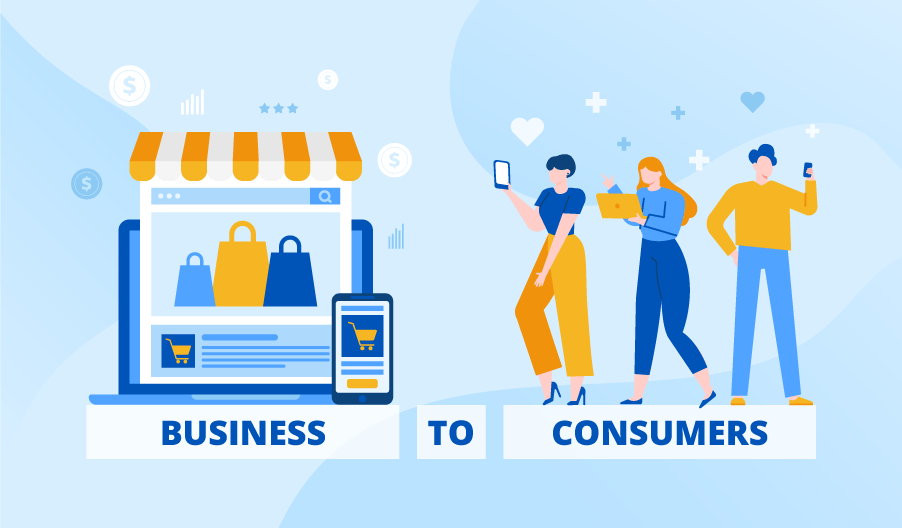Understanding B2C or Business to Consumer relationships is essential for any business owner. In this type of relationship, products and services are sold directly to the end-user or consumer. This is in contrast to Business to Business or B2B relationships, where businesses sell products and services to other businesses. In this article, we’ll delve into the world of B2C and explore its many facets.
What is B2C?
B2C is a business model where a company sells goods, services, or information directly to an individual consumer. Examples of B2C transactions are everywhere. When you buy groceries from a supermarket, order a meal at a restaurant, or purchase a book online, you’re participating in a B2C transaction.
The Role of Companies in B2C Transactions
In a B2C model, companies must focus on creating a consumer-friendly environment. This often involves developing an easy-to-navigate website, offering a wide range of products, and providing excellent customer service. The goal is to create a positive shopping experience that encourages customers to return.
Comparison Between B2C and Business to Business Models
While B2C and business to business models both involve transactions, there are significant differences between the two. In a B2B model, businesses are selling to other businesses. These transactions often involve more significant amounts of money and longer sales cycles. On the other hand, B2C transactions are usually quicker and involve lower costs.
Impact of Government Regulations on B2C Transactions
The government plays a crucial role in regulating B2C transactions. Government regulations are put in place to protect consumers from unfair business practices. These regulations can cover a wide range of areas, including product safety, advertising standards, and data protection. Businesses that fail to comply with these regulations can face hefty fines and damage to their reputation.
Evolution of B2C Transactions
With the advent of the internet, the B2C business model has evolved significantly. Online shopping has become increasingly popular, and companies have had to adapt to this change. Today, businesses not only need a physical storefront but also a digital presence to reach their customers.
Future of B2C Transactions
The future of B2C transactions is likely to be dominated by personalization and convenience. With advancements in technology, companies can now collect data on their customers’ preferences and shopping habits. This information can be used to offer personalized shopping experiences, making the process more convenient and enjoyable for consumers.
In conclusion, understanding the B2C business model is crucial for companies aiming to sell directly to consumers. By focusing on creating a consumer-friendly environment and complying with government regulations, businesses can thrive in the B2C marketplace.





